-
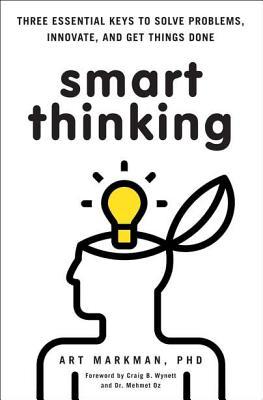
Smart Thinking
Think smart people are just born that way? Think again. Drawing on diverse studies of the mind, from psychology to linguistics, philosophy, and learning science, Art Markman, Ph.D., demonstrates the difference between "smart thinking" and raw intelligence, showing readers how memory works, how to learn effectively, and how to use knowledge to get things done. He then introduces his own three-part formula for readers to employ "smart thinking" in their daily lives. "Smart Thinking" gives readers: *The means to replace self-limiting habits with new behaviors that foster smart thinking *An understanding of the mind itself as well as memory *The ability to define and solve problems by finding and applying relevant knowledge *Ways to present and process information effectively -
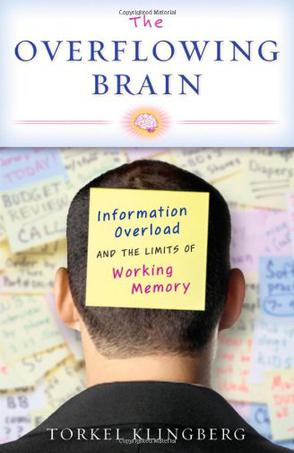
The Overflowing Brain
As the pace of technological change accelerates, we are increasingly experiencing a state of information overload. Statistics show that we are interrupted every three minutes during the course of the work day. Multitasking between email, cell-phone, text messages, and four or five websites while listening to an iPod forces the brain to process more and more informaton at greater and greater speeds. And yet the human brain has hardly changed in the last 40,000 years. Are all these high-tech advances overtaxing our Stone Age brains or is the constant flood of information good for us, giving our brains the daily exercise they seem to crave? In The Overflowing Brain, cognitive scientist Torkel Klingberg takes us on a journey into the limits and possibilities of the brain. He suggests that we should acknowledge and embrace our desire for information and mental challenges, but try to find a balance between demand and capacity. Klingberg explores the cognitive demands, or "complexity," of everyday life and how the brain tries to meet them. He identifies different types of attention, such as stimulus-driven and controlled attention, but focuses chiefly on "working memory," our capacity to keep information in mind for short periods of time. Dr Klingberg asserts that working memory capacity, long thought to be static and hardwired in the brain, can be improved by training, and that the increasing demands on working memory may actually have a constructive effect: as demands on the human brain increase, so does its capacity. The book ends with a discussion of the future of brain development and how we can best handle information overload in our everyday lives. Klingberg suggests how we might find a balance between demand and capacity and move from feeling overwhelmed to deeply engaged. -
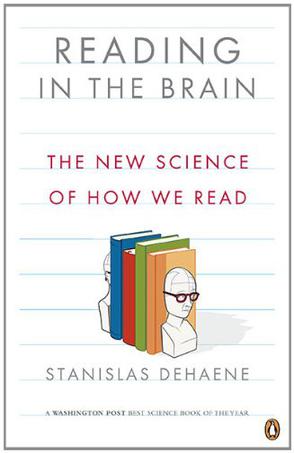
Reading in the Brain
"Brings together the cognitive, the cultural, and the neurological in an elegant, compelling narrative. A revelatory work." -Oliver Sacks, M.D. The act of reading is so easily taken for granted that we forget what an astounding feat it is. How can a few black marks on white paper evoke an entire universe of meanings? It's even more amazing when we consider that we read using a primate brain that evolved to serve an entirely different purpose. In this riveting investigation, Stanislas Dehaene explores every aspect of this human invention, from its origins to its neural underpinnings. A world authority on the subject, Dehaene reveals the hidden logic of spelling, describes pioneering research on hiw we process languages, and takes us into a new appreciation of the brain and its wondrous capacity to adapt. -
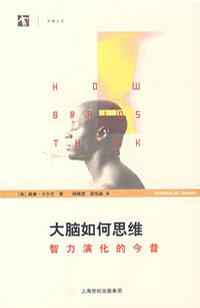
大脑如何思维
本书总结了人类研究大脑如何思维的历史,展现了智力的本质、基础、进化过程及与意识的关系,对大脑的运作机制进行探讨,同时展望了超人智力。本书的语言简洁、生动,是一本非常精彩的科普读物。 皮亚杰曾说,智力是你不知怎么办时动用的东西。那么,智力的本质是什么?动物的智力如何向人类的智力进化?它的基础是什么?这些问题都指引着我们探讨大脑是如何思维的。本书正是一本描述大脑如何工作的优秀科普读物。本书总结了人类研究大脑如何思维的历史,展现了智力的本质、基础、进化过程及与意识的关系,对大脑的运作机制进行探讨,同时展望了超人智力。 -
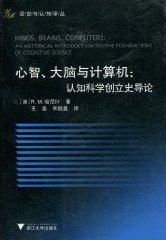
心智、大脑与计算机
本书从历史和跨学科两个视角,对认知科学基础问题进行了导论性质的述评。它描绘了从19世纪到当代认知科学领域某些核心概念的发展轨迹,考察了哲学、心理学、神经科学和计算机科学等学科对认知科学发展的重要贡献和影响。该书还从两个形成鲜明对照的进路考察了心智理论问题:数字计算机和神经网络模型。该书内容可靠、全面。是认知科学导论课程的理想读本,也是心智哲学课程极好的补充读物。 -
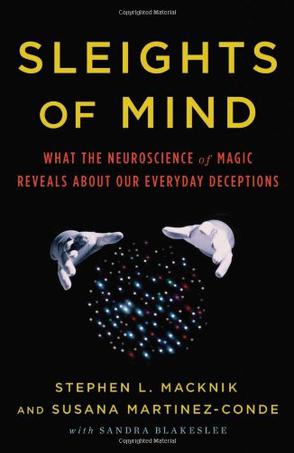
Sleights of Mind
Have you ever wondered how a magician saws a woman in half? Or makes coins materialize out of thin air? Or reads your mind? Magic tricks work because humans have a hardwired process of attention and awareness that is hackable. A good magician uses your mind's intrinsic properties against you in a form of mental jujitsu, to fool you every time, even when you know full well that you are being tricked.Now Stephen L. Macknik and Susana Martinez-Conde, the founders of the exciting new discipline of neuromagic, have convinced some of the world's greatest magicians to reveal their techniques for tricking the brain. This fascinating book is the result of the authors' worldwide exploration of magic and how its ancient principles can now be explained using the latest discoveries of cognitive neuroscience.The secrets behind magic tricks reveal how your brain works not just when watching a magic show but in everyday situations. For instance, if you've ever found yourself paying for